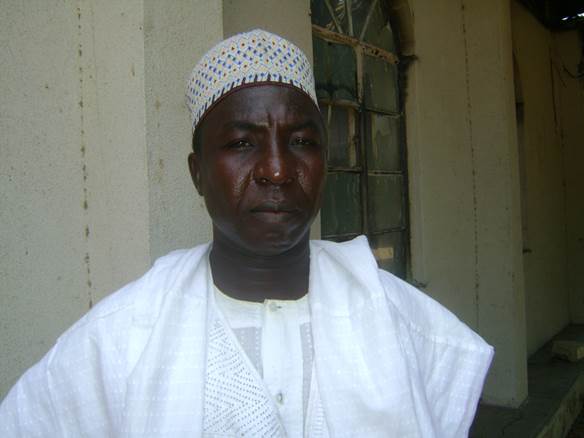Nigeria: Shock and sorrow over Christian leader's murder

Borno State in Northern Nigeria has been teetering on the brink of a takeover by Islamist militant group Boko Haram, warned its Governor, Kassim Shettima, a few days before the declaration by President Goodluck Jonathan of a "state of emergency" in Borno and two neighbouring provinces.
The President's declaration on Tuesday, which also applies to Yobe and Adamawa States in the country's troubled North East region, was followed shortly after by the murder of the Secretary in Borno of the Christian Association of Nigeria (CAN), Rev Faye Pama Musa.
Musa, head of REME Assembly in Maiduguri (the Borno State capital) and Chairman of the state's Pentecostal Fellowship, was reportedly shot at close range by two suspected Boko Haram members in his house, in the presence of his daughter, who pleaded with them to spare her father's life.
A few days before, Borno's Governor Kassim Shettima had briefed visiting Senators and military advisers in a confidential security meeting on May 7, and warned them Boko Haram was close to seizing power in the state.
Shettima also said: "Underneath the mayhem of Boko Haram, beneath the madness lies the underlying cause, which is extreme poverty and destitution which have permeated all spectrums of our society.
"Only and until we address some of these issues, believe me, the future is very bleak for all of us as the current crisis is just an appetizer of things to come. Very soon the youths of this country will be chasing us away."
Reuters quoted Senator Abdul Ahmed Ningi as saying: "What the governor said was frightening. He informed us there is a possibility that this state will be taken over by Boko Haram ... that they have the ability to do whatever they wanted here. I had thought Boko Haram had been subdued to some extent."
On May 14, CAN Chairman in the state, Reverend Titus Pona, who confirmed Musa's death, said the Christian community in the state capital last week received a death threat from an unknown group to kill or kidnap a pastor, but it was dismissed.
"We never thought that the rumour could turn out to be true, and we'd told the Governor that our area was safe," Pona told reporters in Maiduguri.
"Of course, there were no killings around this area before and where I am living has also been seen as safe, until they started killing people again. It is very unfortunate that they came to attack an innocent man.
"Our prayer and hope is that the amnesty declared by the President would help to fish out [those responsible] and bring them to justice for the innocent lives they have taken."
The Governor promised in a condolence message to CAN that the perpetrators would be brought to justice and that Musa's family would be provided for.
The National President of CAN, Ayo Oritsejafor, and Rev Felix Omobude of the Pentecostal Fellowship of Nigeria, condemned Musa's murder and called for improved security following Shettima's admission that Boko Haram were on the verge of seizing control of the state.
Oritsejafor called for the dissolution of the committee created by the federal government to negotiate with Boko Haram and other violent groups in the country, saying "no reasonable agreements can be reached with terrorists".
President Jonathan announced controversially last month that an amnesty was being considered with Boko Haram.
Christian organisations and leaders responded almost universally negatively to this idea.
"Why should they be given amnesty?" said Rev. Joshua Ray Mains, Bauchi State Secretary. "Are we congratulating them for the people they have sent to their early graves, or are we encouraging them to continue with their acts so that other groups can take advantage of the amnesty and continue to disrupt the peace of the country?"
However, Bishop Matthew Kukah, head of the Roman Catholic Diocese of Sokoto, supported the amnesty, saying in his Easter message it would bring the country closer to a new dawn.
"To reject amnesty is to place oneself at the same level as these miscreants," he said. "An offer of amnesty is not the same as a declaration of amnesty. An offer of amnesty brings the penitent to the table as a first step. Amnesty is a process, not a destination. The offer of amnesty will not solve all our problems, but it will bring us closer to a new dawn."
The declaration of emergency across the three states, and the resulting mass deployment of military has been welcomed by many groups in the country.
However, the Progressive Governors' Forum had earlier "implored Mr. President to be consistent with the combination of dialogue and mediation which he has already set in motion, and [hold back from] action on the planned declaration of State of Emergency in the affected states, which we believe would be counter-productive".
Source: World Watch Monitor











